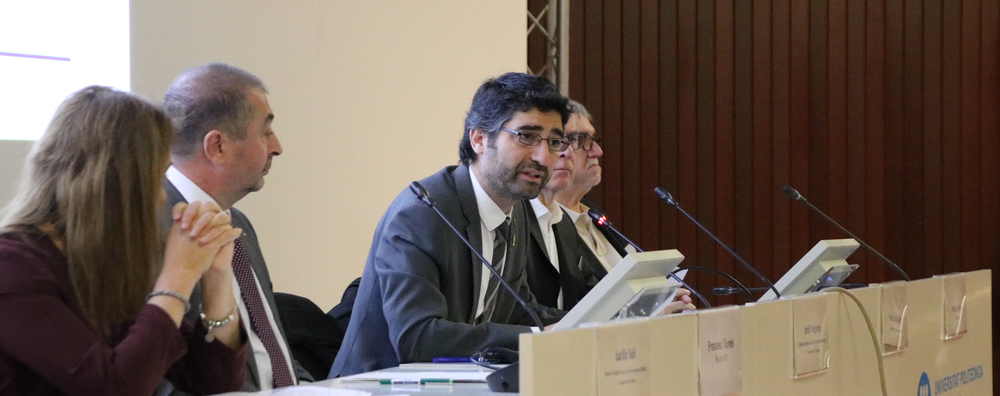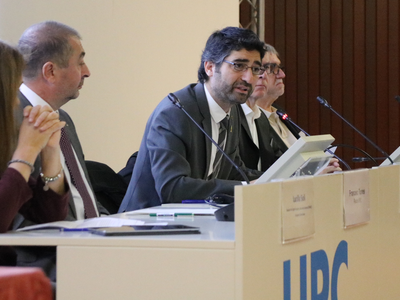- Minister Puigneró made the announcement during the presentation in Barcelona of the European AI4EU project, an initiative to mobilise European AI leaders to make resources based on this disruptive technology available to user
- The Government of Catalonia, in collaboration with the public and private sectors, research institutions and universities, will launch a cross-sector and cross-disciplinary, people-centred AI strategy, which will first be trialled within the public administration

Catalonia is set to become a pioneer after presenting its country-wide, strategic artificial intelligence (AI) plan. The plan, in line with European Commission recommendations in this field, will be people-centred and adopt a cross-disciplinary approach that views disruption as an opportunity and aims to take full advantage of the technology’s potential for the benefit of society. This was the explanation given by the minister for Digital Policy and Public Administration, Jordi Puigneró, who affirmed that “artificial intelligence has to make itself of service by enhancing people’s capabilities rather than taking their place, since it should contribute to improving the well-being of individuals and groups”.
Puigneró announced that the ‘Catalonia.AI’ artificial intelligence strategic plan will tackle the challenges posed by this technology. According to the minister, the document that experts from different areas, sectors and universities have been working on for the past six months, led by the Ministry for Digital Policy and Public Administration, will provide the framework for a cross-sector, cross-disciplinary strategic plan that will focus on and be managed by people, and will concentrate on five sectors (healthcare, society, mobility, sustainability and a productive economy). The plan will first be rolled out within the public administration. The minister specified that thanks to this strategy we will be able to “build an artificial intelligence ecosystem that will enable us to develop a first-class industry”. In addition, according to Puigneró, “it will show the European Union that Catalonia has a hub of players working together to develop a win-win strategy”.
Puigneró made these declarations during the presentation of the European AI4EU (Artificial Intelligence for the European Union) project, which he described as “a great project that positions Europe on the world map of talent and artificial intelligence alongside world leaders in AI”.
In this context, the minister expressed his gratitude for being able to “share the Catalan government’s firm commitment to artificial intelligence with the rest of the scientific and academic community and European authorities, as well as the pioneering work carried out in this field in Catalonia over the past 25 years”. “A Europe where we can say with pride that Catalonia is among the five leading countries in AI”, insisted Puigneró.
The minister explained that “this sector will boost the territory’s GDP in the coming years, as has happened with mobile technology and the apps industry, and will soon happen with 5G”. Specifically, it is estimated that by 2030, artificial intelligence will account for a 15.7 billion dollar additional increase in global GDP. At the Spanish state level, this could represent 0.8% growth in GDP.
As part of the presentation, minister Puigneró met with the director for Artificial Intelligence and Digital Industry within the Directorate-General CONNECT at the European Commission, Lucilla Sioli.
AI4EU
The presentation of the AI4EU project, which took place today at the Vèrtex building in Barcelona, brought together 79 EU entities, with 60 leading research centres, including the Polytechnic University of Catalonia and the Barcelona Supercomputing Center.
Coordinated by the French electronics company Thales, the AI4EU project will receive 20 million Euros in funding from the EC and its goal is to mobilise leading European AI players to make AI resources to facilitate scientific research and innovation available to users. Establishment of an AI4EU Ethical Observatory is also planned to ensure a human-centred approach to artificial intelligence.


